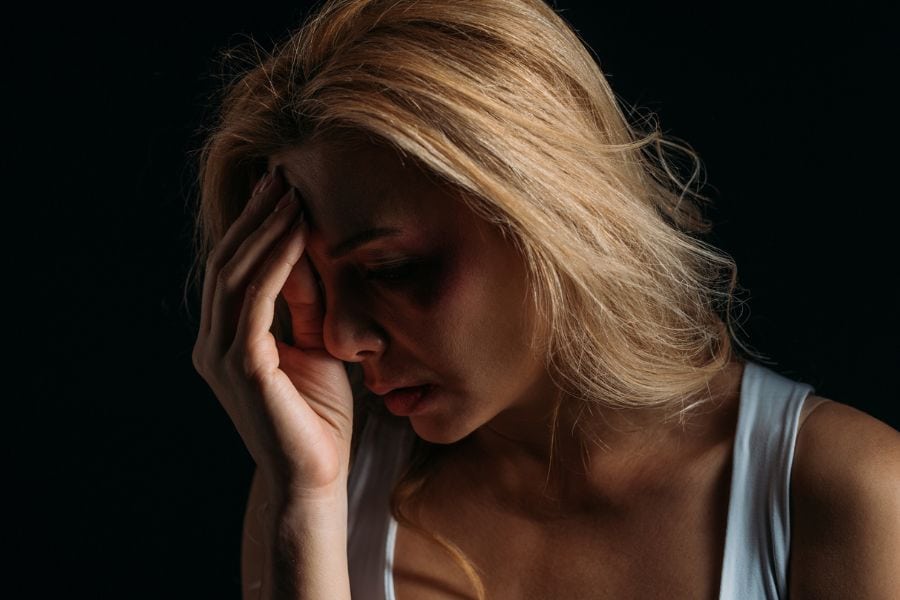
Understanding Emotional Manipulation
Emotional manipulation occurs when someone affects your emotions to gain control of you. They may make you feel horrible about yourself, doubt your feelings, or use guilt to force you to do what they want. It’s like a complicated game in which they try to manipulate your thoughts and feelings.
Identifying Manipulative Behavior
It can be difficult to recognize manipulative behavior. Here are some warning indicators to look out for:
1. Guilt-Tripping: Making you feel terrible about something you didn’t do or shouldn’t feel miserable about.
2. Gaslighting: A mental trick that causes you to doubt your feelings and ideas.
3. Blaming: Always throwing fingers at you, even when you are not at fault.
4. Passive-Aggressive Behavior: Indirectly saying cruel things or acting upset without expressing reasons.
5. Withholding: Withholding affection or knowledge to manipulate or punish you.
Recognizing Blame Shifting
It is important to be able to recognize size the signs of blame shifting. Suppose you’re playing a game when the pieces are knocked over by mistake. Instead of apologizing, they simply remark, “You made me do it!” That is a form of blame-shifting. It’s like when someone does something bad but doesn’t want to get caught, so they blame it on you.
When you recognize blame-shifting, keep calm, and know that it is not your fault. Take a deep breath and avoid allowing their statements to make you feel horrible about yourself. It can be tough but try not to argue or get defensive.
It’s vital to tell others what you’re okay with and what you’re not. Express what you want clearly. If things get tough, talk to people you trust, like friends, family, or a therapist, for guidance. Always remember, emotional manipulation isn’t on you, and you deserve to be treated well and respectfully.
How to Respond When Someone Hurts You But Blames You
When someone blames you for something they did wrong, it can be painful and frustrating. It can make you feel as if you’re always on guard and can’t do anything properly. However, keep in mind that you are not accountable for the behavior of others. Here are some approaches for productive communication and ways to create boundaries when someone abuses you but blames you.
Effective Communication Techniques

Pay Close Attention: When the other person speaks, listen attentively. It expresses your interest in what they have to say. To make sure you understand what they said, you are able to repeat it.
Try using “I” statements: Rather than stating, “You did this,” try expressing, “I felt like this when that happened.” It makes you feel less defensive and helps the other person recognize how you feel.
Stay away from blaming: It’s essential to refrain from assigning blame to the other person for their actions. Rather, concentrate on how their actions made you feel and how you would like them to behave differently going forward.
MORE posts YOU MIGHT LIKE
- Top ten comebacks for a blamer
- Don’t put the blame on me: Personal responsibility in relationships
- Top ten comebacks for complainers
- Top ten comebacks for judgmental people
Setting Boundaries
Talk Clearly and Directly: Be direct while communicating your boundaries to others. Say something like, “I’m not okay with…” or “I don’t like it when…”
Respect Your Boundaries: After you establish a boundary, be sure to honor it. It demonstrates to them your sincerity regarding your wants and emotions.
Take care of yourself: When dealing with someone who harms you but blames you, it’s vital to take care of yourself. This could imply ending the relationship or seeking help from friends or a therapist.
You have no control over how or what people do. Setting boundaries and using suitable means of communication might help you avoid being blamed for things that are not your fault. It’s similar to making a shield to protect yourself from harsh judgment. Remember that you deserve to be treated fairly and with respect.
Ella’s mom was a narcissist who would hurt her and then blame her
My friend Ella’s mom was a beautiful woman, always perfectly put together with a charming smile that could light up a room. But behind closed doors, she was a different person altogether. She was a narcissist who thrived on manipulating and hurting others to boost her own ego.
Ella grew up in a household where her mother’s emotional abuse was a constant presence. Her mom would criticize her appearance, belittle her achievements, and constantly compare her to others. No matter what Ella did, it was never good enough for her mother.
The worst part was that her mom would hurt her and then blame her for it. If Ella dared to stand up for herself, her mother would twist the situation around and make her feel guilty for even questioning her. She would gaslight Ella, making her doubt her own reality and sanity.
As Ella grew older, she realized that her mother’s behavior was not normal. She sought therapy and support from friends and other family members. With their help, she was able to understand that her mother’s actions were a reflection of her own insecurities and issues, rather than anything Ella had done wrong.
Eventually, Ella made the difficult decision to distance herself from her mother for the sake of her own mental health. It was a painful choice, but one that allowed her to start healing and rebuilding her self-esteem.
Despite the scars left by her mother’s narcissistic behavior, Ella found strength in her experiences. She vowed to break the cycle of abuse and to create a loving, supportive environment for herself and her own future family. Through therapy and self-reflection, she learned to set boundaries and prioritize her own well-being, no longer allowing her mother’s hurtful words to define her.
Seeking Professional Help
If you find yourself dealing with these challenges regularly and feeling emotionally tired, obtaining professional treatment is an appropriate decision. Therapists can provide a safe space for you to process your emotions and get perspective on the issue.
When to Consult a Therapist
If your emotions become too strong or difficult to manage, or if what’s going on makes you feel unhappy or anxious all the time, that’s a warning sign. Therapy is like a toolbox full of tactics and tricks for dealing with difficult situations. Therapists are guides who can help you how to handle emotional situations more effectively.

They teach you how to deal with your emotions and how to deal with circumstances in which someone is not treating you properly. It’s like having someone who understands emotions and how to make them feel better. Therapy is meant to make you feel stronger and more capable of dealing with whatever is going on.
Role of Therapy in Emotional Healing
Therapy is a safe place to explore your feelings and experiences without judgment. It aids in the understanding of behavioral patterns, the restoration of self-esteem, and the development of healthy methods to conduct relationships.
Dealing with emotional abuse might be difficult but remember that you deserve to be treated with dignity and respect. Don’t be afraid to seek assistance. Recognizing the dynamics of emotional manipulation is a critical first step toward healing and healthy relationships.
Therapy teaches you how to deal with things that have damaged you in the past and how to deal with them better in the future. It’s like having a coach who teaches you new ways to think about things and how to react in a healthier way. Therapy is all about assisting you to heal on the inside and feel stronger to handle whatever life throws at you.
When someone hurts you but then blames you for their actions or behavior, it can be a very challenging and a painful experience. In such situations, it’s important to prioritize your well-being and set healthy boundaries for yourself.
Remember that you are not responsible for someone else’s hurtful behavior, and it’s okay to assert your feelings and seek support. Whether through open communication, seeking guidance from trusted individuals, or distancing yourself from the toxic dynamic, prioritizing your emotional health is crucial. Ultimately, recognizing your worth and refusing to accept unwarranted blame is an important step towards maintaining your self-respect and well-being.
The Role of counselling and self care
I Should Have Said Media will earn a commission after clicking links on this page at no additional cost to you. Learn more.
When you are dealing with a person who hurts you but blames you and you find it stressful, consider getting support from a professional. Talking to a counselor is a great way to work through a challenging situation, and help you find some strategies to work through the person’s behaviour.
Better Help is a great resource where you can talk to a counselor from the comfort of your own home.
Taking care of your own needs isn’t selfish, and you will feel better in the long run.








